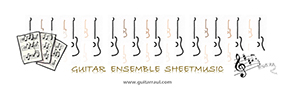Clive W. Kronenberg
https://www.themusicologyreview
An in-depth academic scrutiny of Elogio de la danza, Leo Brouwer‘s advanced solo guitar work composed close on fifty years ago, has remained relevant for a number of reasons. As a start, the Cuban artist is widely considered as arguably the most significant living twentieth -century composer for the guitar. Linked to this, scholars of the guitar have praised the work for varying, weighty reasons:
- Elogio de la danza must be acknowledged as a one of the pieces – if not the piece-by which
a soloist‘s playing of Brouwer is judged.
- This is one of the most played of contemporary guitar pieces, and this fact makes this an
important historical document.
Notwithstanding Elogio de la danza‘s enduring prominence, musicological journals in the English-speaking world have yet to subject it to stringent, scholarly assessment. This, likewise, is reflective of the fact that such publications have rarely ventured into the general affairs of the instrument. Elogio de la Danza quite surprisingly was composed in a matter of one or two days only.
This factor, naturally, may give rise to speculation about its artistic ‗worth‘. As such, an analytical scrutiny should, to some degree, be able to delve into its underlying musical value, given its acclaimed standing in guitar literature. In view of these factors, and others, the analytical inspection presented here is thus long overdue. It is, however, largely guided by the creator‘s own thoughts on his masterpiece.
Leo Brouwer’s Elogio de la danza (1964): Im prints of Dance, Stravinsky, & the Unison of Contraries





